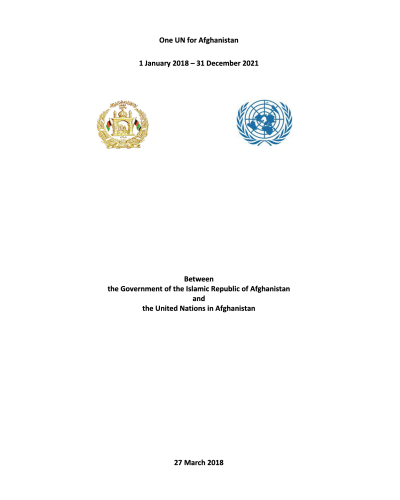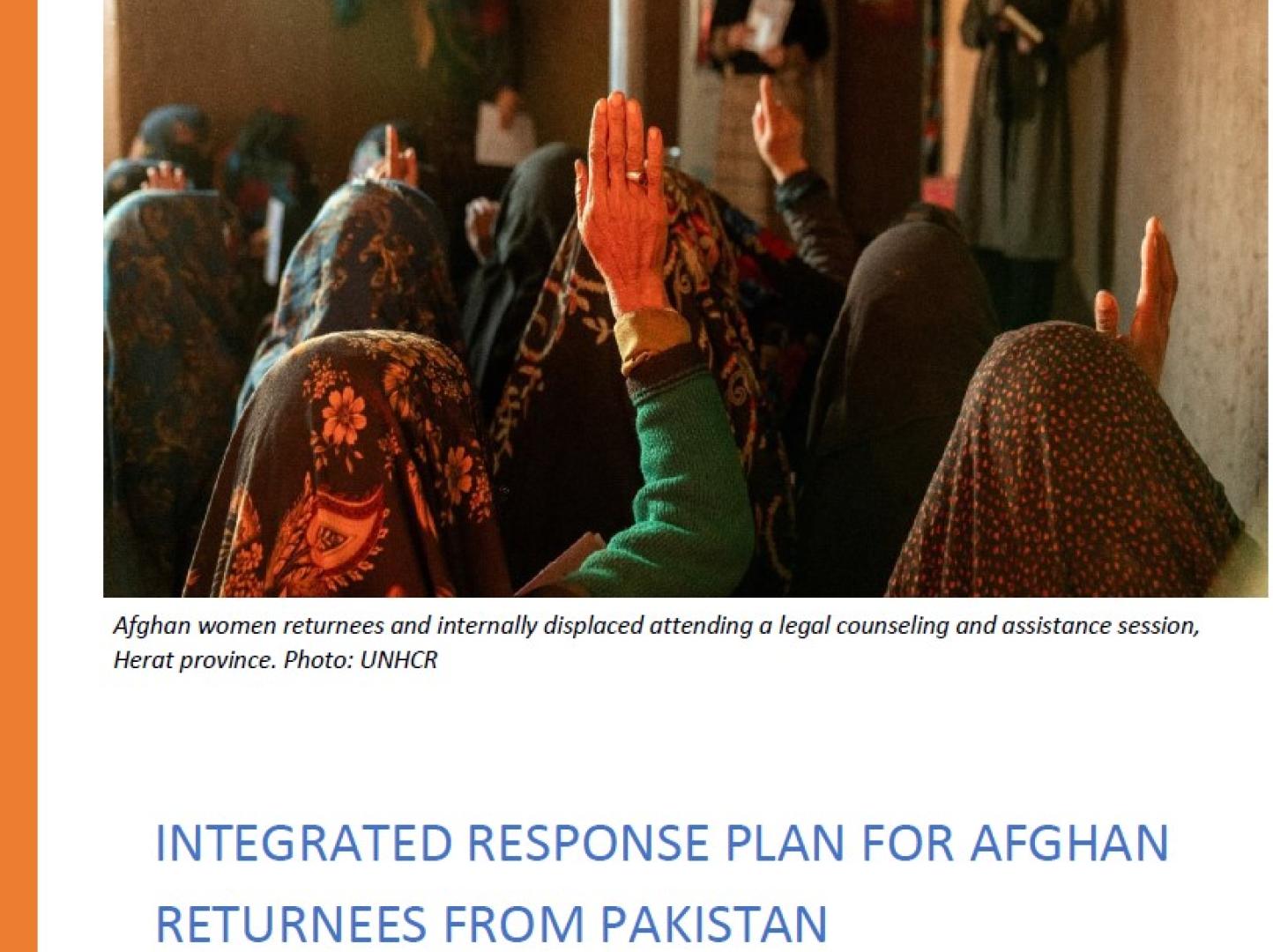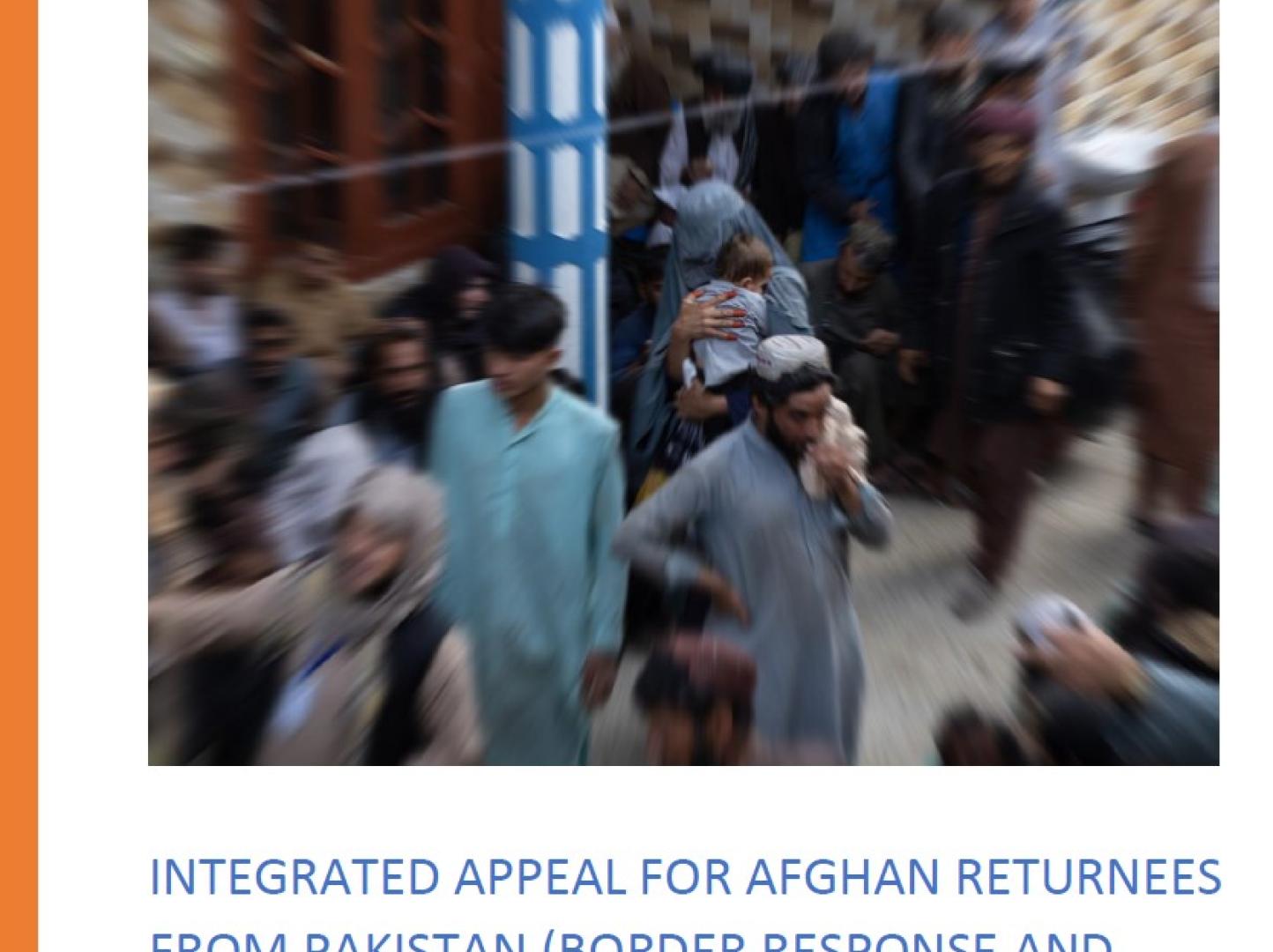One UN for Afghanistan

In 2016, the Islamic Republic of Afghanistan (GoIRA) launched the Afghanistan National Peace and Development Framework (ANPDF) to carry the country forward from 2017 to 2021. The United Nations Mission in Afghanistan (UNAMA) and the United Nations Agencies, Funds and Programmes (hereafter ‘UN agencies’) recognize the ANPDF, and the development planning system that underpins it, as the single coordinating structure for development assistance. This comprehensive framework serves to focus all development assistance to Afghanistan around the priorities of the GoIRA, ensuring that Afghanistan’s development is Afghan owned and led. The ANPDF addresses Afghanistan’s legacy by identifying the development challenges of the population, and describing GoIRA’s roadmap for ensuring peace and security, and ending poverty and achieving self-reliance. While the ANPDF recognizes that realizing these goals will take longer than a single generation, it serves to “begin the long journey to prosperity.”
The ANPDF notes the establishment of Development Councils, each of which are the custodians of one or more of the ANPDF’s ten National Priority Programmes (NPPs) and decide on policy and programmes, and the UN’s future work is to be demand driven, i.e. requested and considered by councils and endorsed by them before it may begin.
The UN recognizes that there are significant challenges in all spheres, from the political to the economic, human resourcing capacity to institutional structures. To date, the UN has organized its work under the auspices of the UN Development Assistance Framework (UNDAF), with a number of pillars aiming to contribute to a comprehensive set of outcomes. The approach was standard in that it centred on what UN agencies are expected to do or aspire to achieve in such a context.
When speaking about the situation in Afghanistan, the United Nations Secretary-General has recently noted that the UN’s development assistance, “needs to be aligned closely with the Afghanistan National Peace and Development Framework while reflecting the global objectives of the United Nations, in particular the 2030 Agenda for Sustainable Development.” The Secretary-General encourages the UN in Afghanistan to embody a new way of working that will enable it to be a partner that provides support in a way that is more strategic, collective, transformative, and efficient.
In light of the ANPDF, inspired by President Ghani’s expectation that the UN deliver jointly as one under the Government’s leadership, and given the Secretary-General’s call for reform, the UN in Afghanistan has undertaken a comprehensive review of its work. This analysis has shown that in 2016 and 2017 more than 90% of the money spent by UN agencies focused on five thematic areas: education; food security, nutrition and livelihoods; health; return and reintegration; and rule of law. An additional 1% of resources was dedicated to a sixth thematic areas, i.e. the UN’s normative work, including human rights advocacy and protection, and promoting international regulations and guidelines.
For 2018 onward, together with government counterparts, UN agencies have identified how all of their work in the six thematic areas contributes to outcomes that the NPPs aim to achieve. Four of the six are largely focused on poverty reduction, social inclusion, economic growth and job creation particuarly in the context of rapid population growth1 , with the central pole being the Citizens’ Charter and the Agriculture Development Programme. The area of rule of law supports different parts of the ANPDF, including governance, social capital and nation building. The UN’s normative agenda supports the Government to achieve its commitments, particularly in the area of workers’ rights, child rights, and governance and meeting its obligations to international instruments, regulations, guidelines, and protocols. There has been progress on gender but there is still a major challenge in ensuring better opportunities for women. Gender is therefore a cross-cutting consideration in all the 6 thematic areas of the UN’s focus. 2 There is a strong degree of clustering around common objectives and outcomes. The UN is open to periodic reviews to maintain responsiveness to emerging development demands.
One UN for Afghanistan is based on past performance, available resources and those foreseen to be available in the future. In other words, the focus is on what UN agencies can actually deliver. Further, UN agencies do not see their role as supporting all of the ANPDF, but rather to centre work where the UN has experience and resources. Given that the UN agencies’ work is clustered in six thematic areas, this paper shows how these six thematic areas contribute to various NPPs within the ANPDF. The UN’s work is to be conducted under the guidance of and in close coordination with the relevant Development Councils. The UN looks forward to ever-closer working relations with the newly created Development Councils in this regard as they become established and as they develop the benchmarks for the National Priority Plans.
For each of the six areas, the UN has two agency co-leads 3 who act as the main counterparts for the relevant Development Councils. One UN for Afghanistan outlines how UN agencies will work as one and make more meaningful contributions to key areas, including capacity development. This paper serves as a basis for continuous dialogue to enable the UN to detail more clearly the UN’s contribution to key development challenges facing the people of Afghanistan and, at the same time, to demonstrate how the UN works better as one team. This paper also outlines the need for a mutual accountability framework between the Government and the UN and continues to encourage the support, engagement and lead of the Development Councils in this regard. The ‘delivering as one’ approach will ensure effective coordination by reducing duplication, cutting costs and promoting accountability.
In preparing One UN for Afghanistan hard choices had to be made. In a setting such as Afghanistan, it is tempting to try to help address all or most of the challenges facing a country. Indeed, many donors or officials in government approach UN agencies with a wide range of offers or requests. But based on the thorough review of the UNDAF, the UN has noted where it would like to focus, i.e. norms; education; food security, nutrition and livelihoods; health; return and reintegration; and the rule of law. One UN for Afghanistan details the actions to be taken by the UN to help Afghanistan achieve certain outcomes outlined in the ANPDF and its associated NPPs.


















